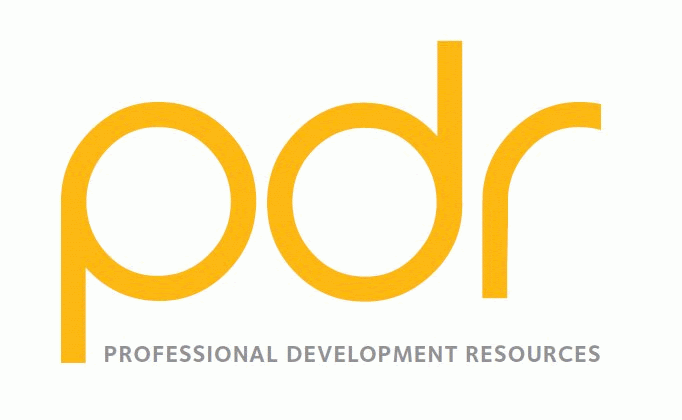Alzheimer’s Disease and Dementia: A Practical Guide is a new 3-hour online continuing education (CE) course that offers healthcare professionals a basic foundation in Alzheimer’s disease prevention, diagnosis, and risk management.
This course offers practical information to aid healthcare professionals as they interact with clients who are diagnosed with Alzheimer’s disease and dementia. Dementias other than Alzheimer’s disease will be referenced when information about their specific symptoms or treatment is discussed.
We start by considering the differences between typical or “normal” aging and signs indicative of Alzheimer’s disease. This is followed by a review of the criteria necessary to diagnose Alzheimer’s disease and the available evaluations for testing cognition and biomarkers. In section two, we consider the possible risk factors for Alzheimer’s disease, such as traumatic brain injury, Down syndrome, cardiovascular risks, environmental factors, and lifestyle factors.
Section three offers insight into new developments in the study and treatment of Alzheimer’s disease and related dementias and provides information regarding reputable sources for further information.
The difficulties caregivers experience are discussed in section four and strategies for supporting those caregivers are provided. Section five presents practical guidance for caring for a person with Alzheimer’s disease, including daily care activities, keeping the person safe, and unwanted behaviors.
Section six reviews prevention and compensation strategies to help people protect their cognitive health as they age. This includes modifiable risk factors that have the potential to reduce the prevalence of Alzheimer’s disease. A special section on protecting our elders from scams is also provided. Course #31-50 | 2023 | 65 pages | 20 posttest questions
- CE Credit: 3 Hours
- Target Audience: Psychologists | Counselors | Speech-Language Pathologists (SLPs) | Social Workers | Occupational Therapists (OTs) | Marriage & Family Therapists (MFTs)
- Learning Level: Introductory
- Course Type: Online
Click here to learn more about Alzheimer’s Disease & Dementia
About the Author
Laura More, MSW, LCSW, has been a licensed clinical social worker for over 40 years and has worked in a variety of practice settings, including: rehabilitation, oncology, trauma, skilled nursing, education, and management. She founded Care2Learn, an online continuing education resource for post-acute healthcare professionals. She has co-authored psychology and nursing books as well as authoring hundreds of online courses. Laura is currently a healthcare author/editor of online continuing education courses, specializing in evidence-based research review. She is the recipient of the 2010 Education Award from the American College of Health Care Administrators.
Course Directions
This online course provides instant access to the course materials (PDF download) and CE test. The course is text-based (reading) and the CE test is open-book (you can print the test to mark your answers on it while reading the course document).
Successful completion of this course involves passing an online test (80% required, 3 chances to take) and we ask that you also complete a brief course evaluation. Click here to learn more.
Professional Development Resources is approved by the American Psychological Association (APA) to sponsor continuing education for psychologists. Professional Development Resources maintains responsibility for this program and its content. Professional Development Resources is also approved by the National Board of Certified Counselors (NBCC ACEP #5590); the Association of Social Work Boards (ASWB Provider #1046, ACE Program); the Continuing Education Board of the American Speech-Language-Hearing Association (ASHA Provider #AAUM); the American Occupational Therapy Association (AOTA Provider #3159); the Commission on Dietetic Registration (CDR Provider #PR001); the Alabama State Board of Occupational Therapy; the Arizona Board of Occupational Therapy Examiners; the Florida Boards of Social Work, Mental Health Counseling and Marriage and Family Therapy, Psychology and Office of School Psychology, Speech-Language Pathology and Audiology, Dietetics and Nutrition, and Occupational Therapy Practice; the Georgia State Board of Occupational Therapy; the Louisiana State Board of Medical Examiners – Occupational Therapy; the Mississippi MSDoH Bureau of Professional Licensure – Occupational Therapy; the New York State Education Department’s State Board for Psychology as an approved provider of continuing education for licensed psychologists (#PSY-0145), State Board for Mental Health Practitioners as an approved provider of continuing education for licensed mental health counselors (#MHC-0135) and marriage and family therapists (#MFT-0100), and the State Board for Social Workers an approved provider of continuing education for licensed social workers (#SW-0664); the Ohio Counselor, Social Worker and MFT Board (#RCST100501) and Speech and Hearing Professionals Board; the South Carolina Board of Examiners for Licensure of Professional Counselors and Therapists (#193), Examiners in Psychology, Social Worker Examiners, Occupational Therapy, and Examiners in Speech-Language Pathology and Audiology; the Tennessee Board of Occupational Therapy; the Texas Board of Examiners of Marriage and Family Therapists (#114) and State Board of Social Worker Examiners (#5678); the West Virginia Board of Social Work; the Wyoming Board of Psychology; and is CE Broker compliant (#50-1635 – all courses are reported within a few days of completion).
Enjoy 20% off all online continuing education (CE/CEU) courses @pdresources.org! Click here for details.

















 A new study warns that relying on clinical symptoms of memory loss to diagnose Alzheimer’s disease may miss other forms of dementia that do not initially affect memory.
A new study warns that relying on clinical symptoms of memory loss to diagnose Alzheimer’s disease may miss other forms of dementia that do not initially affect memory.




 An interesting study on how centenarians die, and how they manage to live longer lives.
An interesting study on how centenarians die, and how they manage to live longer lives. 




 Study finds that people with traumatic brain injury have the same plaque buildup as people with Alzheimer’s disease.
Study finds that people with traumatic brain injury have the same plaque buildup as people with Alzheimer’s disease.


